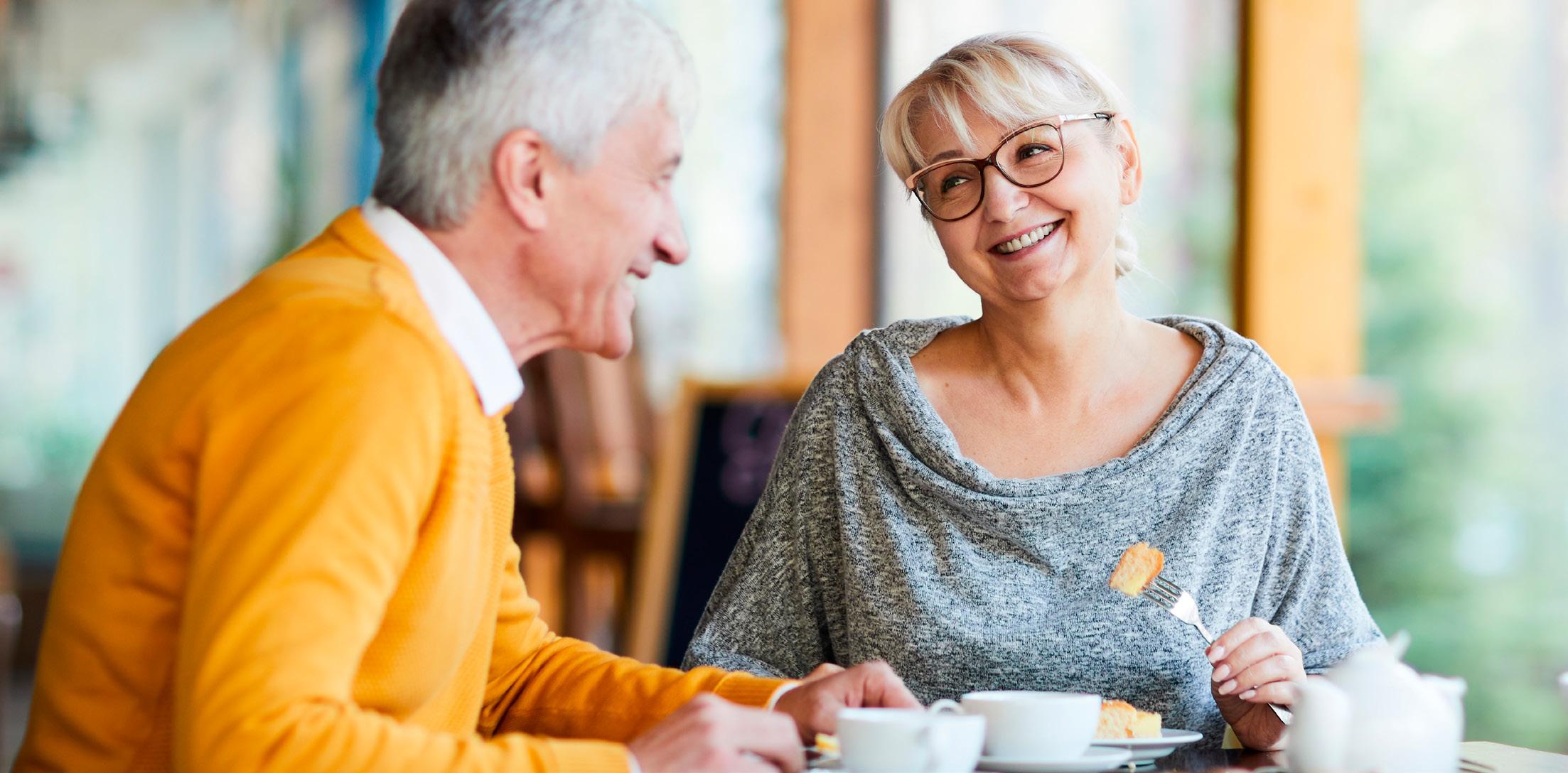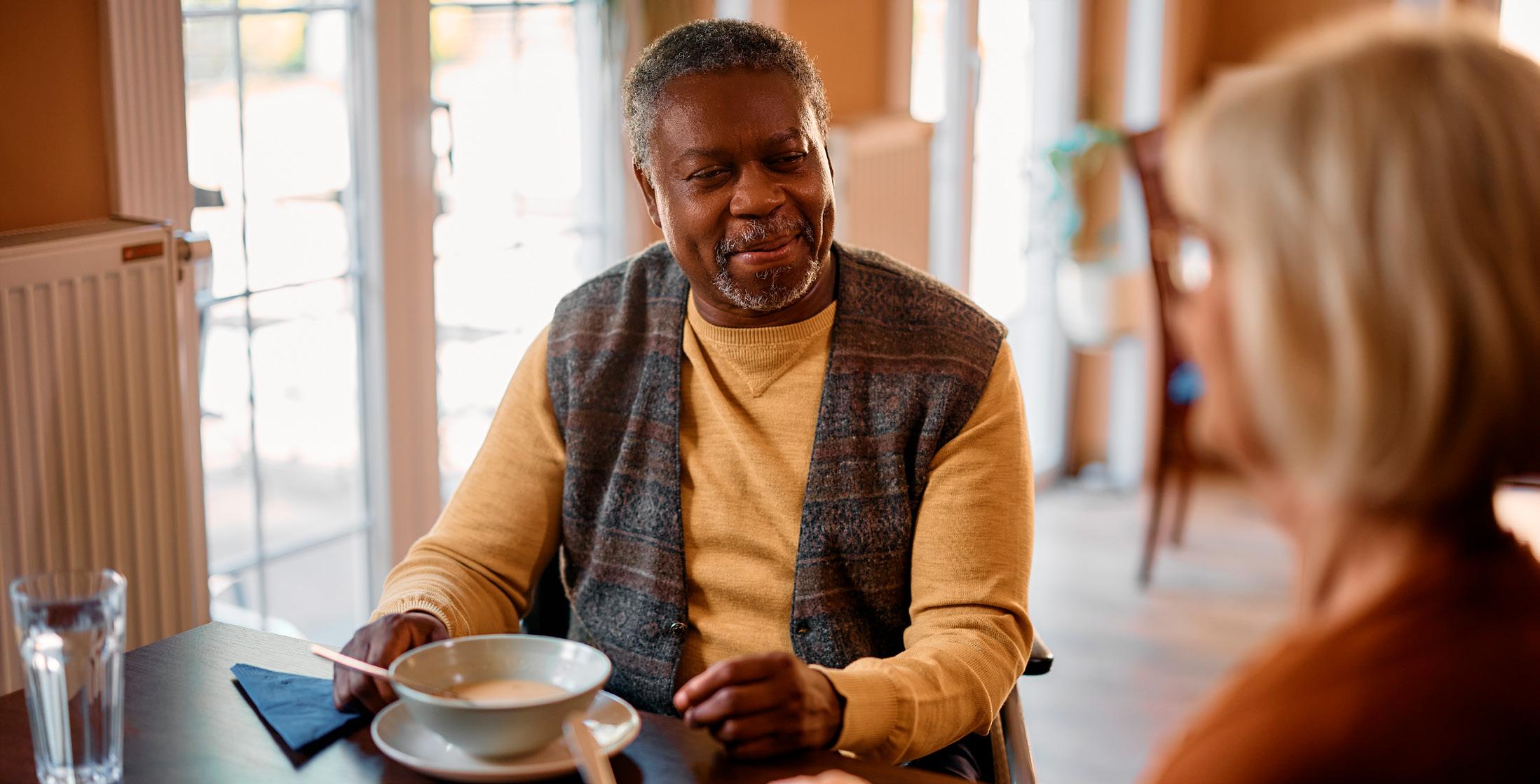
7 minute read
Introduction
For readers who are new to the term ‘Age Friendly’ it’s about recognising the challenges of an ageing population and looking at all the different ways that together we can rise to those challenges, foster healthy and active ageing, make it possible for people to continue to stay in their homes participating in the activities they value and contributing to their communities for as long as possible.
Welcome to your Learn with Lunch booklet!
This booklet is produced as part of the Age Friendly Salford programme and brings together in one easy read, the key points and contact information we will be covering over our Learn with Lunch sessions. These sessions are designed to help people in mid and later life keep healthy, active and informed.
You will see lots of QR codes throughout the booklet. These can be used to quickly take you to the webpage for more information. You need a Smartphone or tablet, Apple users can directly open their camera app and scan the code. Android users may need to search for a QR code app in the Play Store and download it to scan the QR codes as not all default camera app are compatible.
In this booklet you will find information about:
• Wellbeing
• Looking After Yourself and Others
• Eating Well
• SCAMS Awareness
• Pension Credit and Cost of Living Support
• Wills and Power of Attorney
• Preparing for Summer
• Preparing for Winter
Be Active: What physical activities are important to me?
1 How do I currently keep physically active?
2 Where do I currently go to keep physically active?
3 What physical activity do I currently do?
Keep Learning: What am I currently learning or doing?
1 How do I currently keep my mind active?
2 Where do I currently go to keep learning?
3 What am I currently doing to learn new things?
Take Notice: What matters to me now?
1 How do I currently take time for myself?
2 Where is an important space for me to go?
3 What do I currently do to look after my own wellbeing?
What Are You Are Grateful For Today?
Each day is different. Even if your day seems pretty much the same, there will be lots of little (and maybe some big) things that are different every time. Pay attention and you’ll start noticing more of those!
At the back of this booklet, you will find a Gratitude List for you to write down the things you are grateful for. If you find it a useful exercise, you can continue the activity in a notebook.
Give:
What do I do to give my time for an act of kindness?
1 How do I currently help others?
2 Where do I currently go to help others?
3 What do I currently do to help others?
Wellbeing can be defined as:
Good feelings day to day and overall happiness and satisfaction with life
Eating well
Eating a healthy, balanced diet is an important part of maintaining good health, and can help you feel your best. This means eating a wide variety of foods in the right proportions, and consuming the right amount of food and drink to achieve and maintain a healthy body weight.
People with special dietary needs or a medical condition should ask their doctor or a registered dietitian for advice.
People should try to:
• Eat at least 5 portions of a variety of fruit and vegetables every day
• Base your meals on higher fibre starchy foods like potatoes, bread, rice or pasta
• Have some dairy or dairy alternatives (such as soya drinks)

• Eat some beans, pulses, fish, eggs, meat and other protein
• Choose unsaturated oils and spreads, and eat them in small amounts

• Drink plenty of fluids (at least 6 to 8 glasses a day)

If you’re having foods and drinks that are high in fat, salt and sugar, have these less often and in small amounts.
Check for hazards inside the home
Check for hazards outside the home
Falls are serious at any age, but breaking a bone after a fall becomes more likely as we get older. Even if a bone is not broken after a fall, people become fearful of falling again and this may limit the amount of activity a person feels they can do. However, falls are preventable and set out below are some steps to reducing the risk of falling. Spills

Check out Greater Manchester Fire and Rescue website for information on how to stay safe: www.manchesterfire.gov.uk
/staying-safe
For a FREE Safe and Well visit please call 0800 555 815
Check out Greater Manchester Police website for information on your local area, how to report a crime and find helpful advice to keep you safe: www.gmp.police.uk

Learning even the simplest first aid skill can make the difference in an emergency –download a free First Aid app on your phone, for example First Aid by British Red Cross (available in your phone’s app store). Other First Aid skills apps are available.

Eating and drinking well is an important part of looking after our wellbeing.

Here are a few tips that can help you be prepared.
Stay well hydrated
We need about 6-8 drinks per day to stay well hydrated. This improves concentration, energy and mood, so we can keep our minds active. It will also stop us from getting infections and help to avoid hospital at this crucial time. Why not keep a tally of your drinks so you know if you have reached your daily target?
All hot and cold drinks count (except alcohol!).
Think about how you will get your shopping if the weather is bad
Ask a neighbour or family member to help or contact one of the Age Friendly Salford Team if you are not sure. If you have access to the internet set up your online shopping now. Need some help? Get involved with our weekly Tech and Tea sessions and we can show you how.
Keep an eye on yourself
If you think you are eating less than usual or don’t have much appetite keep track of your weight or check if your clothes, jewellery or belts are looser than usual.
If you have a poor appetite
Try to increase the amount of energy and protein you get each day. You may find it easier to:
• Eat little and often
• Use full-fat food and drinks (e.g. milk, yoghurts)
• Enhance your food by adding cream, butter and cheese
• Have extra nutritious drinks such as Horlicks, glasses of full cream milk, milkshakes and cup-a-soups.
Keep your kitchen cupboard and freezer stocked with some simple, tasty foods and long-lasting foods.
Tinned and frozen fruit and vegetables are just as healthy as fresh and buy small tins and packets where possible.
My Store Cupboard Checklist
Items
Breakfast cereal and porridge
Jam, marmalade, peanut butter and honey
Baked beans, macaroni cheese and spaghetti
Tinned stews, meats, fish and lentils
Already have Need to order
Some specific booklets are available and can be found online (via the website at the bottom of the right page) or sent to you through the post.
These are:
• Eat, Drink, Live well booklet – tips for people who have a poor appetite or have lost weight without meaning to
• Staple cupboard recipes –quick and easy recipes using ingredients you may have in your cupboard
• Meal and snack ideas from a range of cultures
• Food First recipes – that will help you put on weight
If you would like any of this information to be sent through the post please contact Age UK Salford on 0161 788 7300
Tinned vegetables and fruit
Tinned custard, sponge and custard and rice pudding
Long life milk and milk powder
Squash and fruit juice
Horlicks, Ovaltine and drinking chocolate
Instant/ready meals
Frozen sausages, burgers, fish fingers
Frozen fruit and vegetables
Boil in the bag meals, e.g. fish in sauce
Ice cream/ ice lollies
Frozen desserts, e.g. jam roly poly, crumbles
Milk can be stored in the freezer until needed
For more information and resources, visit www.ageuk.org.uk/salford/about-us/improving-nutrition-and-hydration

